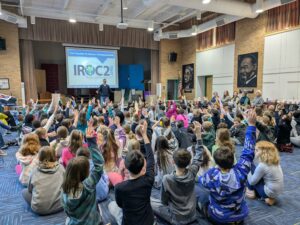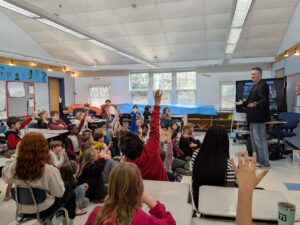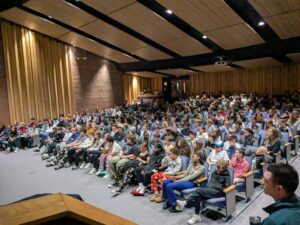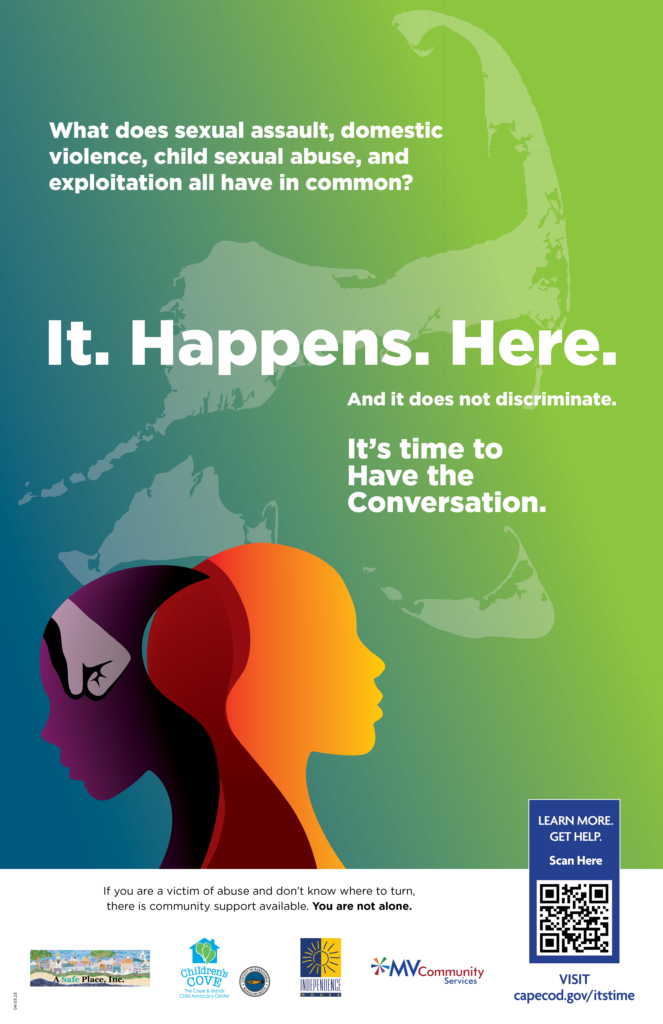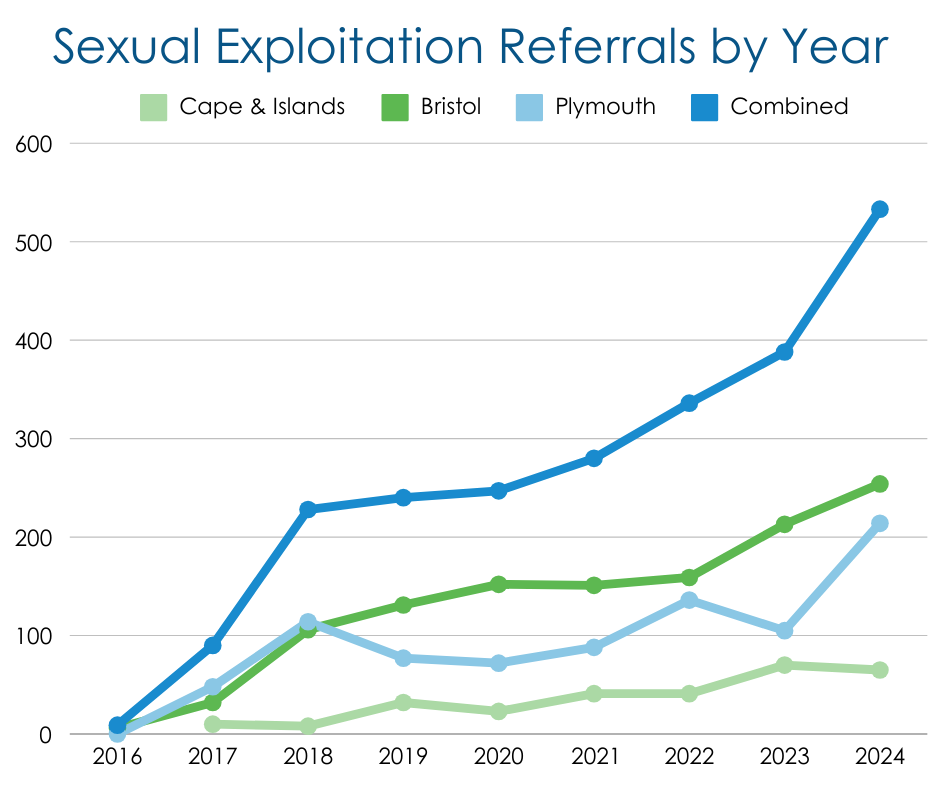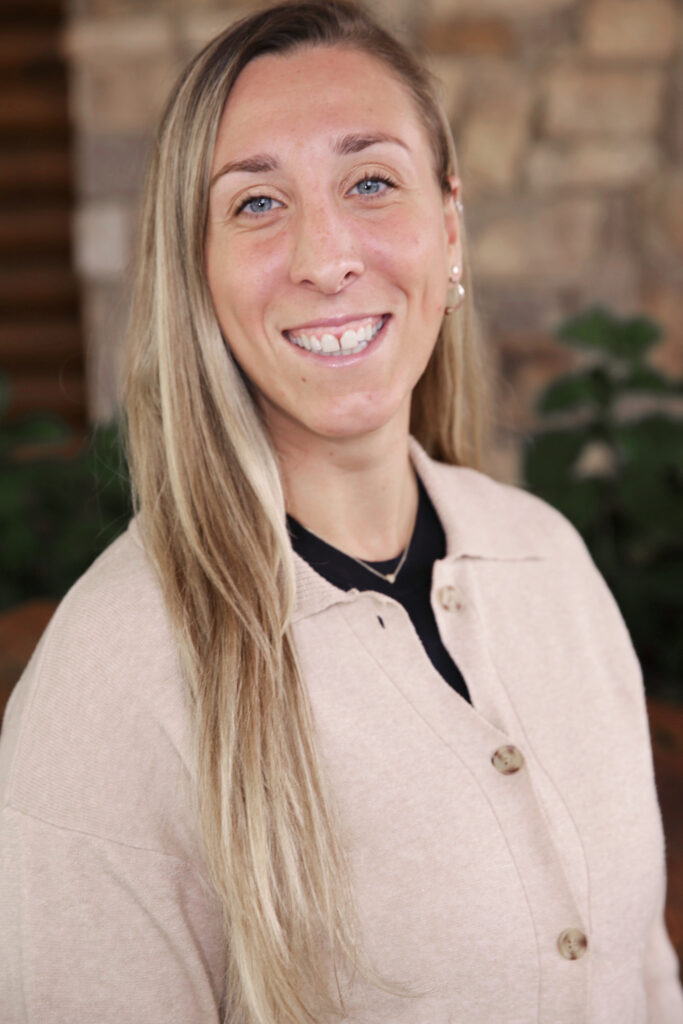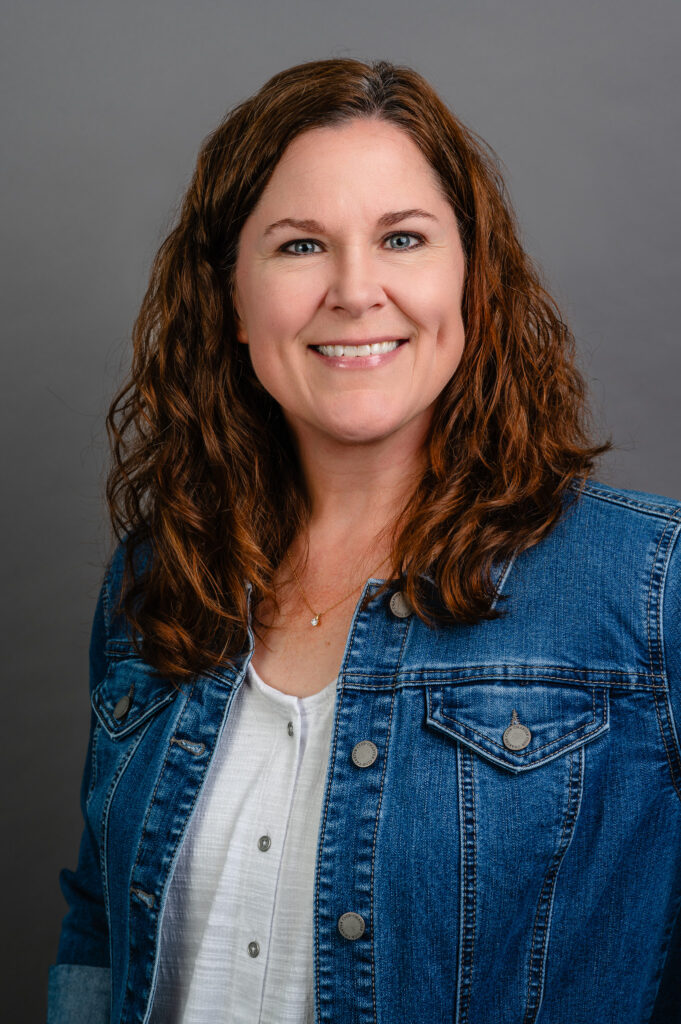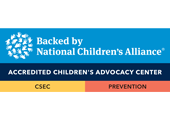The Hidden Risks: Protecting Children in a Hyper-Connected World
April 21, 2025
On April 15th and 16th, Children’s Cove partnered with The Monomoy Regional School District, and The Institute for Responsible Online and Cell Phone Communication (IROC2) to provide education and digital mindfulness information to students from 3rd grade to 7th grade. Through our dialogue and conversation with students, one of the biggest takeaways for us highlights a serious misunderstanding of how much children understand about technology, the risks they face, and the even greater risks they may yet face in the future.
Richard Guerry, Executive Director and Speaker of IROC2, conducts his presentations with infectious energy so as to best engage with students. Some of the findings shared by students are surprising and certainly pose concern. When 3rd and 4th graders were asked if they knew what AI was, more than 60% of students raised their hands, were able to verbalize what AI meant – and to a certain degree, what it does. In all grade levels, the majority of students identified that they were what they self-described as “gamers”, additionally admitting that regardless of whatever rules there are in their homes, the majority of students communicated with other people online. Even more disturbing, not only to our team but for staff, teachers and administrators within the schools, is the fact that half of students who report playing a particular online game, also reported they have been hacked online or knew someone who had been.
What started as a simple exercise to engage with students led to the realization that children who haven’t even entered high school, who interact regularly with other people online, are already finding themselves engaging with people who mean to do harm. As Richard states in his presentation, “With new technology comes even faster methods of communication and innovation; these children are ultimately those who face all of the risks.”
Unfortunately for us this isn’t a new issue, but a constantly evolving one. For many years, there has been an emphasis on educating teens about the risks of sexting and sharing nudes. This is still a critical issue, not only from the cases we have seen regionally, but direct disclosures from students in local schools and information gained from our Teen TASK Force members. While we need to continue to address these concerns of children sharing nude image and videos if we only act reactively, we are falling behind what’s next.
As a Children’s Advocacy Center, we must look at a broader scope of our work with all issues posing a risk to children. Nationally, we have seen the trends of sexual exploitation change significantly since the onset of Covid-19. With the rapid integration of the physical and online worlds, risk factors for sexual exploitation and human trafficking have shifted. Following a first of its kind study, there is evidence more children from different backgrounds are at a greater risk for sexual exploitation today as compared to before the pandemic.
A clear understanding of the definition of findings in this pre- vs. post-pandemic assessment is important as we adapt to an increasing electronic threat faced by our children. Researchers noted “CSE [child sexual exploitation] profiles of youth identified since the onset of the pandemic significantly diverged from profiles of young people identified prior to the pandemic …. A new profile emerged among youth referred for concerns of CSE since the pandemic which involved young people with mental health concerns (historically, and at the time of referral) who were identified as having exchanged sexually explicit media electronically.”
In summary, online facilitated crimes against children have skyrocketed on a national and local level with reports from the National Center for Missing and Exploited Children for online enticement of children increasing by more than 300% between 2021 and 2023.
With new technology comes even faster methods of communication and innovation; these children are ultimately those who face all of the risks.”
– Richard Guerry, IROC2
This trend is reflected regionally as well. The Children’s Cove 2024 Regional Report on Sexual Exploitation of Children shows in past years we have seen that more than 90% of local cases contain an online element of communication or exploitation. What’s more, last year alone more than 50% of all cases referred to our centers were online only, meaning that they are exclusively sextortion or online exploitation without an in-person component.
What we warned our community about just under 5 years ago has grown exponentially, and we need to reinforce the fact that where children go, those who mean to do them harm will follow.
During Child Abuse Prevention Month, the role parents play in the prevention of online facilitated crimes against children cannot be understated and must be effectively emphasized. We implore that every caregiver of children must understand the responsibilities they have for understanding technology and the integration of safety into children’s online lives.
In just this one group, Monomoy students are taught digital citizenship and safe technology use in school starting in Kindergarten, and they are not permitted to use cell phones or gaming devices at school — so this concerning activity largely happens in the home. It becomes critical, then, that parents, caregivers, and educators collaborate to help protect kids both in and out of school.
The times of simply taking away a child’s phone, computer, or internet privileges is long gone. The online world has become far too integrated into our daily lives to realistically enforce a blackout. Now is the time to change our concept of what “being online” entails, and recognize that all internet enabled devices are tools, and all tools carry an inherent risk or danger, most especially for children.
It is our responsibility as parents and caregivers to understand how these tools work, and to teach our children how to use these tools effectively and safely. We need to make certain children are understanding the importance of not sharing personal information online, and that ALL of their actions online are all Public and Permanent®.
Four years ago, Children’s Cove launched an initiative asking younger kids, teens, parents and caregivers to make a commitment to focus on the importance of their own online safety. Our It’s Up To You webpage shares numerous tools and technological safeguards you can review and use. With technology growing at the fastest rate ever witnessed, now more than ever is the time for our community to Take the Pledge and adopt an active role to prevent the sexual exploitation of children.
Be smart and be safe online. It’s up to you to prevent online sexual exploitation of children.
